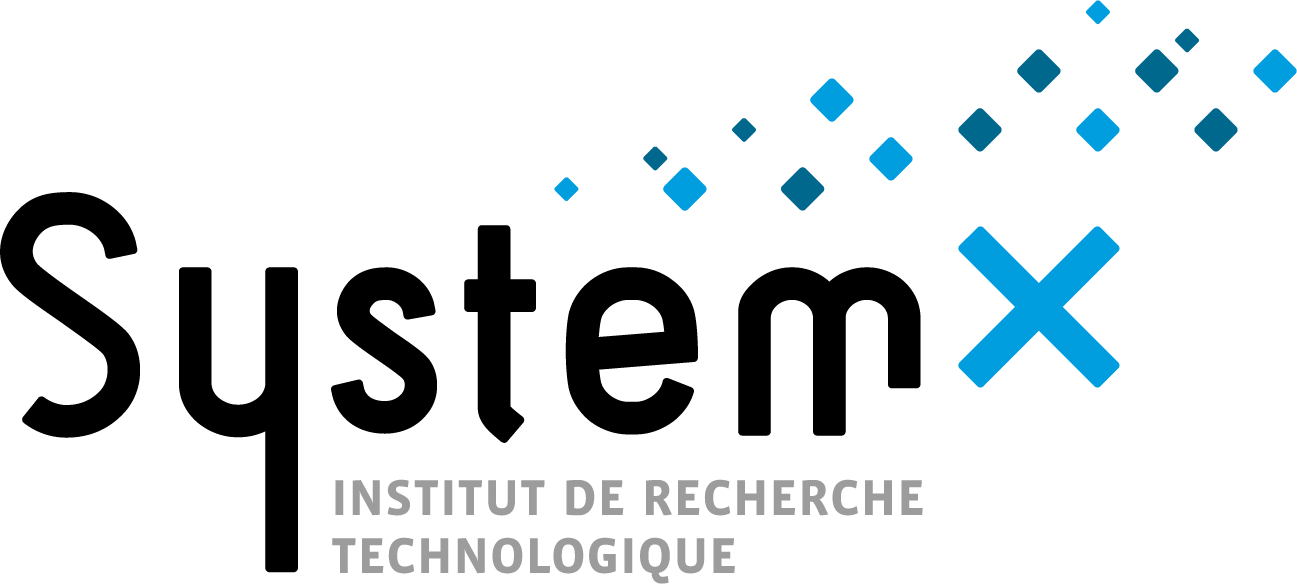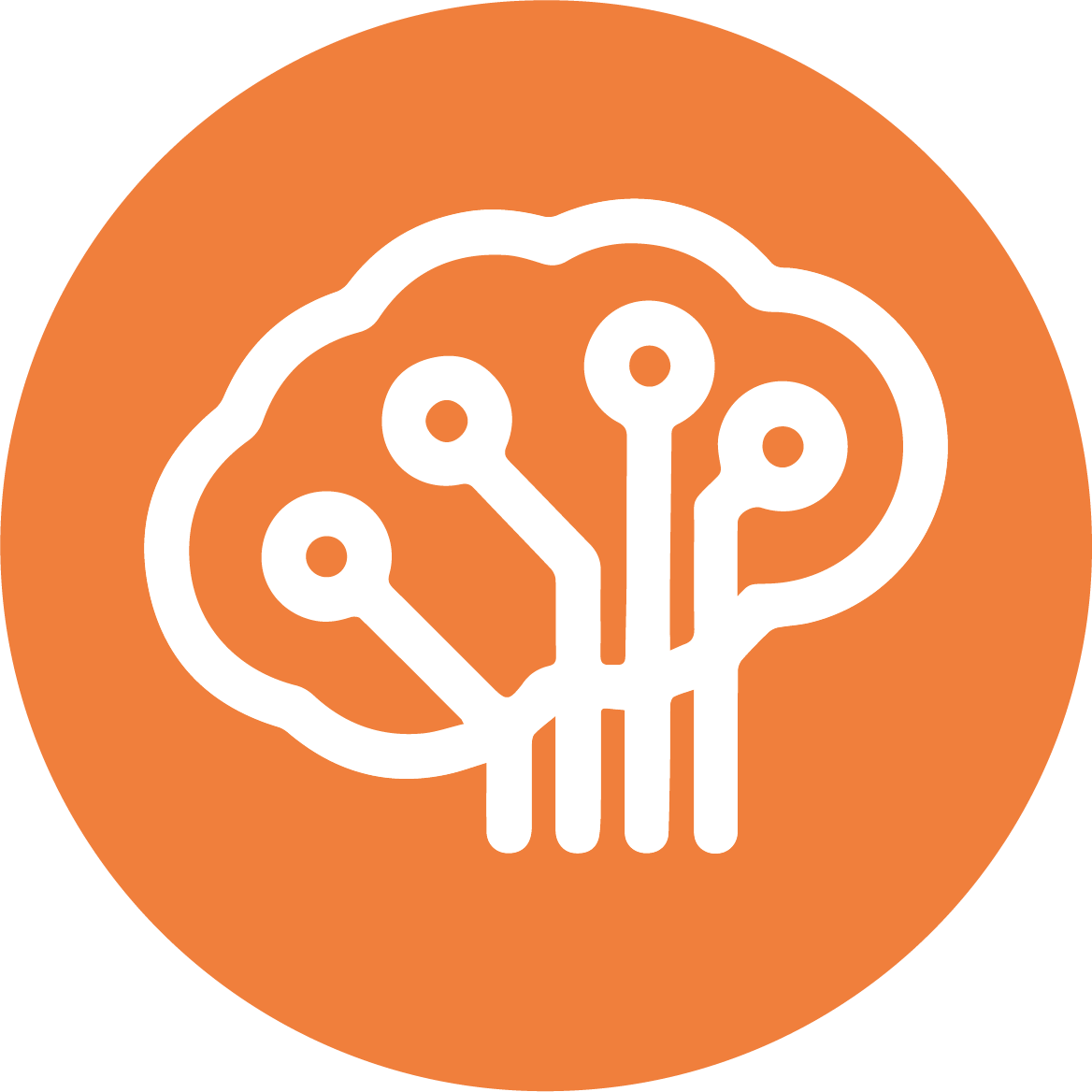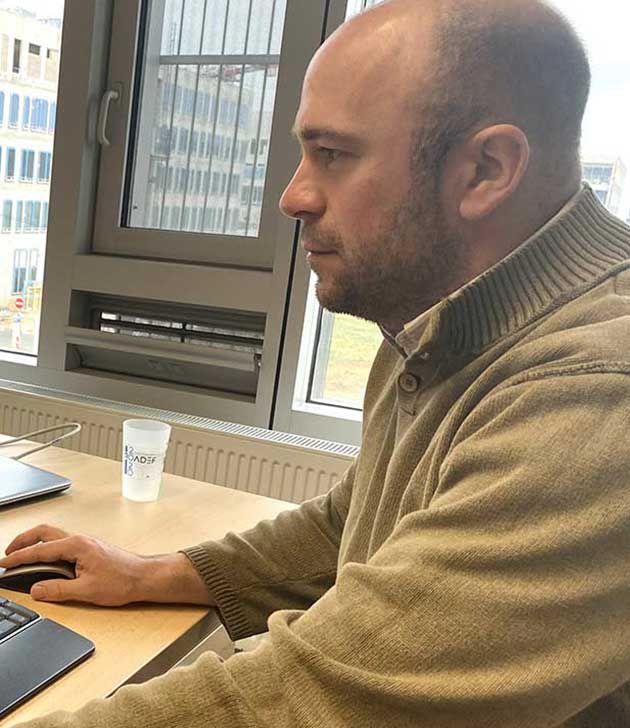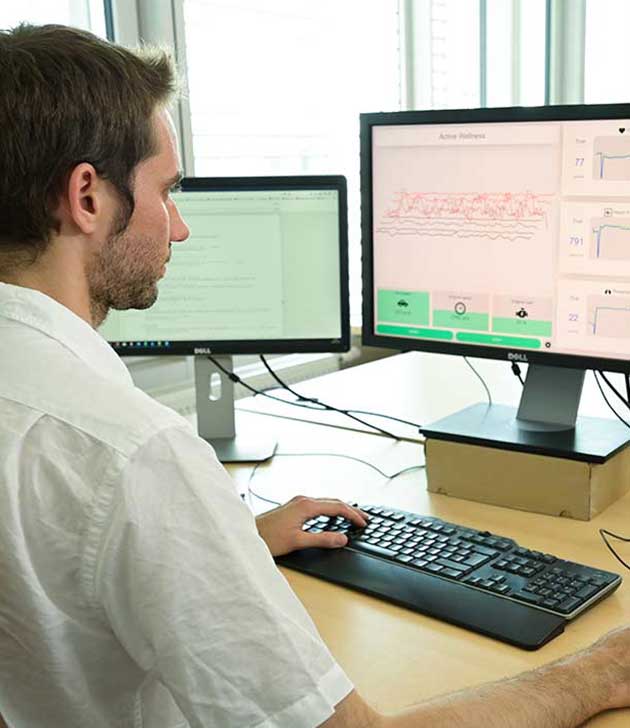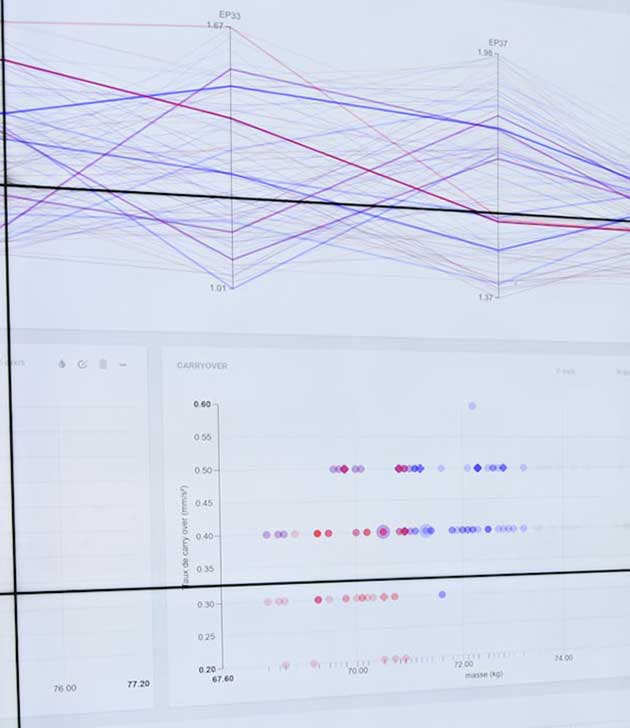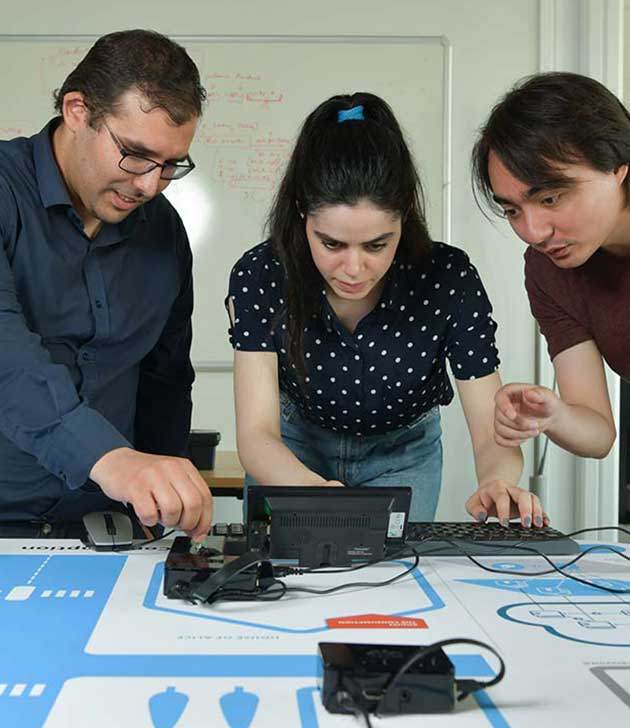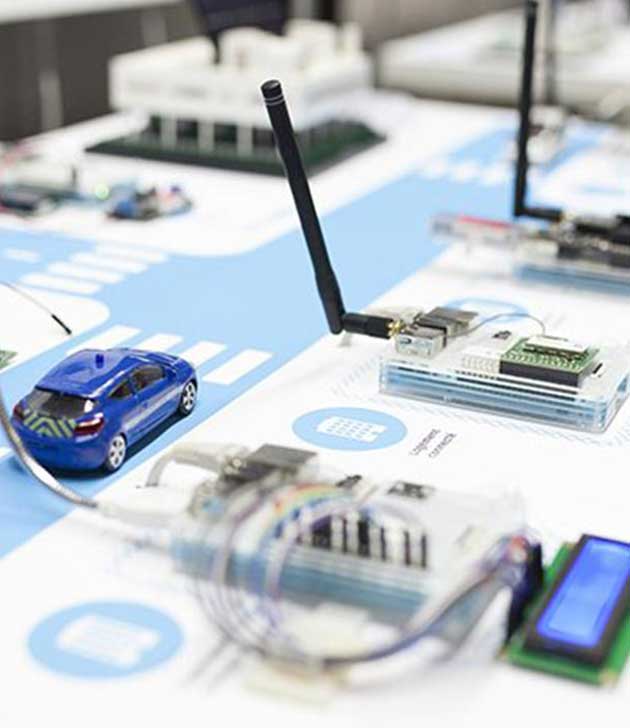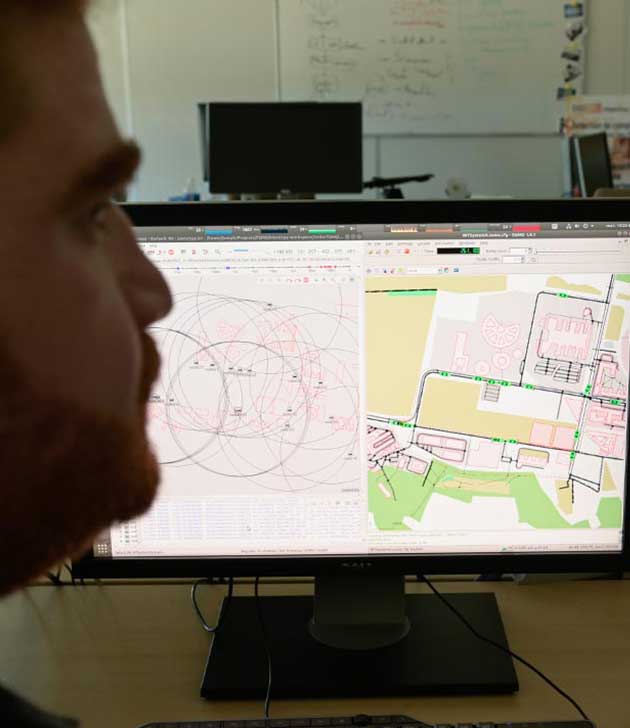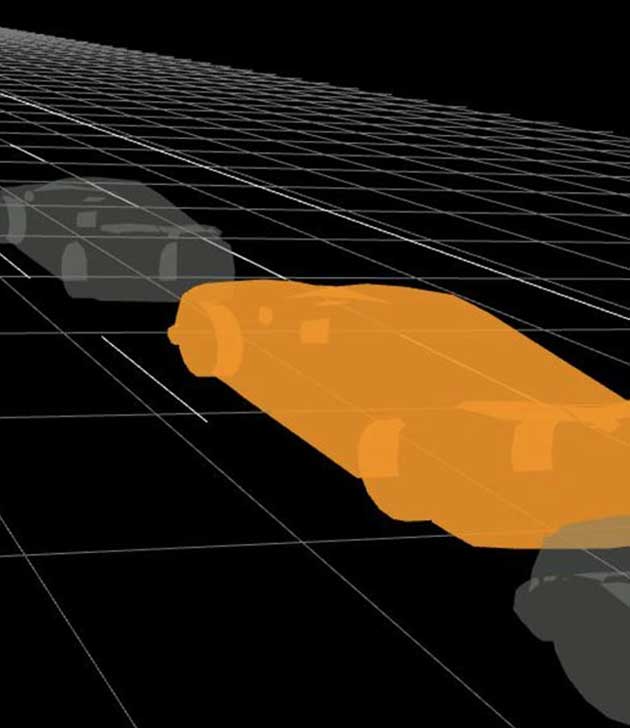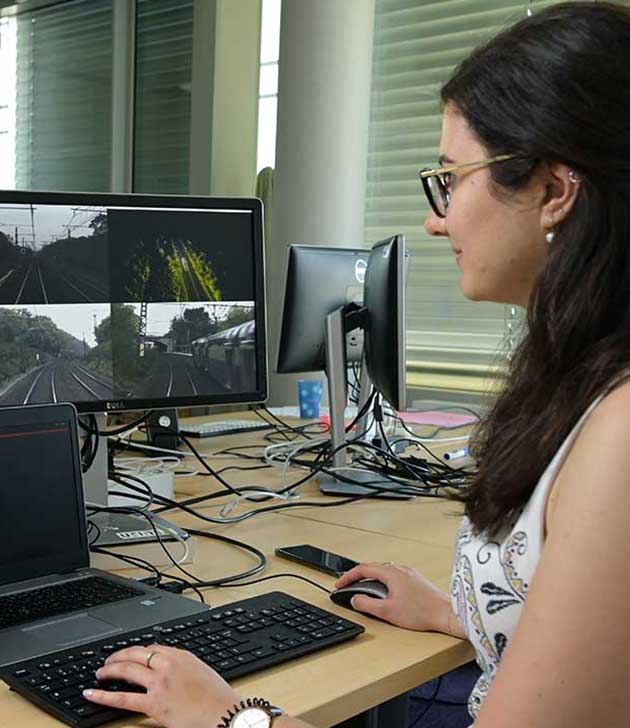SystemX has established itself as one of the key R&D players in France in the field of artificial intelligence (AI). Not only do the scientific and technological issues related to AI and data sciences underpin a dozen research projects carried out by the institute, but SystemX is also at the initiative of a particularly ambitious prospective R&D programme: “Artificial Intelligence and Augmented Engineering” (IA2), launched at the beginning of 2020 and bringing together some twenty industrial and academic partners for five years on the theme of AI hybridisation. SystemX is also the operator of the technological part of the Grand Défi du Conseil de l’Innovation (Innovation Council’s Grand Challenge) on the theme of “Securing, certifying and making reliable systems based on artificial intelligence”.
Through six collaboratives R&D projects for industrial purposes and an upstream project to pool scientific results, the IA² programme aims to provide angineering teams designing complex systems with new tools that take advantage of new approaches resulting from IA. By developing solutions that hybridise the three existing approaches to modelling and simulation (physical mod-elling of systems, knowledge models expressed by business experts, data-based learning models), it aims to optimise their operational performance and contribute to the necessary transformation of expertise.
Interview
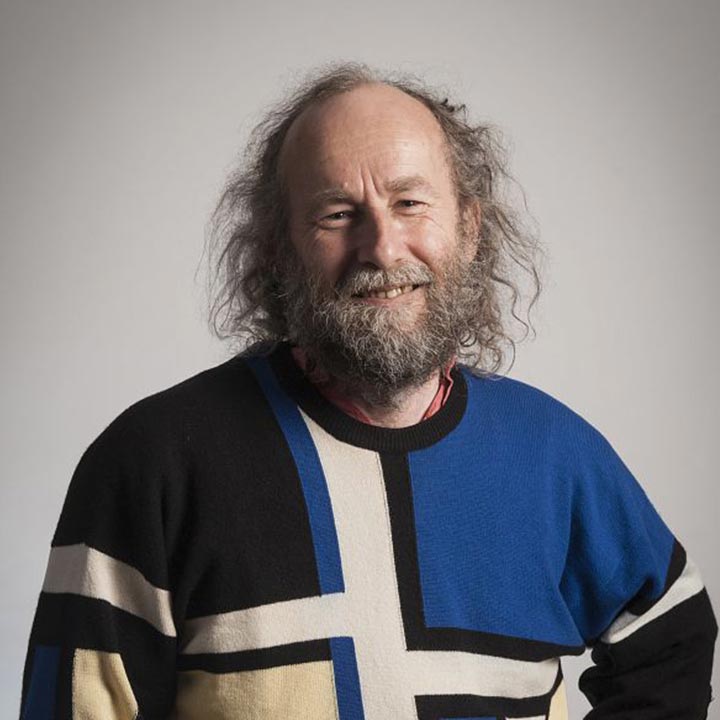
Marc SCHOENAUER
Research Director,
centre Inria Saclay – Île-de-France, coordinator of the IA² programme
What are the technological and scientific challenges facing the AI2 programme?
The ambition of the IA2 programme is twofold: from a technological point of view, it aims to bring the most recent advances in terms of artificial intelligence to industrialists who design, develop and validate systems, so that they can be applied to their professions. From a scientific point of view, it aims to hybridise scientific fields such as simulation, multi-agent systems, semantics and ontologies or even man-machine interfaces and to make them benefit from the latest advances in AI. AI is in the process of becoming a universal tool and I am convinced that the future of AI is multidisciplinary.
What were your motivations to join this project?
What particularly interested me is that this programme tackles real cases of industrial use, through six projects. The industrial partners have, in each of the projects, identified the scientific locks to be lifted and are aware that this requires significant fundamental research work. It is therefore a question of hybridising AI with other disciplines, both fundamental and applicative. In my opinion, this will also involve crossing different AI techniques with each other (deep networks, logical reasoning, semantic approaches, etc.). My role, as scientific coordinator of the IA2 programme, is to match these different techniques, to act as a kind of conductor.
What actions do you plan to implement in Advance IA2 for which you are in charge of scientific coordination?
In particular, we plan to organise a major conference to which other comparable initiatives in France and Europe will be invited. But also, the drafting of white papers and state of the art papers, as well as the animation of the whole IA2 doctoral programme.
Focus
Grand Défi “Securing, certifying and making reliable systems based on artificial intelligence”.
One of the five Grand Défis chosen by the Innovation Council in 2019 is the transparency and auditability of autonomous AI-based systems. Named “Securing, certifying and making reliable systems based on artificial intelligence”, this programme aims to develop the necessary capacities to observe, understand and audit the functioning of these systems while developing approaches that demonstrate the explicable nature of their operation. SystemX is in charge of the technological component of this Grand Défi, which is being developed through a four-year programme, currently hosting six projects and involving some ten partners.


